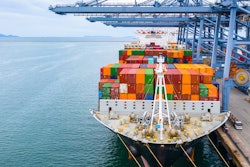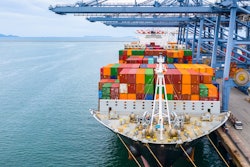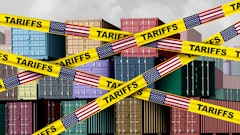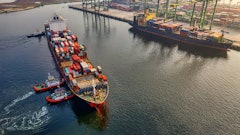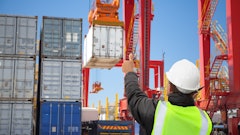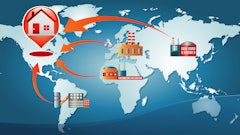
Even though the EVER GIVEN vessel was freed from blocking the Suez Canal, the ripple effect of its lodging will have continued ramifications for global supply chains in the weeks to come as global trade resumes, goods start to be unloaded at destination ports and suppliers look to replenish shortfalls in essential materials that threatened downstream production and manufacturing of consumer goods, according to a report published by E2Open and Dun & Bradstreet.
“The disaster of the moment becomes a global phenomenon because it is yet another reminder of the interconnectedness that comes with globalization and our reliance of each other as contributors to the global supply chain. Companies have developed a higher level of dependency on suppliers and third parties from other countries, and that dependency is highlighted when a link in the supply chain is impacted. The Suez Canal incident gives us yet another reason for businesses to invest in data and technology to create an agile, geographically dispersed supply chain that can quickly pivot during unexpected events,” says Brian Alster, general manager, third-party risk and compliance, Dun & Bradstreet.
“While considerable attention has focused on the economic value of cargo trapped on vessels and their inability to move through the Suez Canal, the financial impacts on downstream production that depend on the timely delivery of these materials is magnitudes greater. For instance, the delay of an inexpensive but crucial automotive part en route from China can prevent the sale of the entire vehicle in Germany. The ability to peer inside containers, understand downstream business impacts of transport delays and systematically take corrective actions, provides a distinct competitive advantage for global businesses,” says Pawan Joshi, EVP of product management and strategy for E2open.
From Dun & Bradstreet:
- Using proprietary supply chain and shipping data, the team found that Europe is the region that will feel the strongest impact due to the blockage of the canal. Companies located in Asia will be impacted by the delay of shipments from Europe, but also by a shortage of empty containers returning to their region.
- The top countries most impacted by the Suez Canal blockage include the United Kingdom, Germany, Belgium, France, Netherlands, Italy, Switzerland, Spain, Turkey and Austria.
- The Top 10 industries most impacted by this incident include grocery stores, department stores, auto and home supply stores, hardware stores, surgical and medical equipment suppliers, plumbing, heating and air conditioning, semiconductor, general warehousing and storage, trucking and sporting goods.




